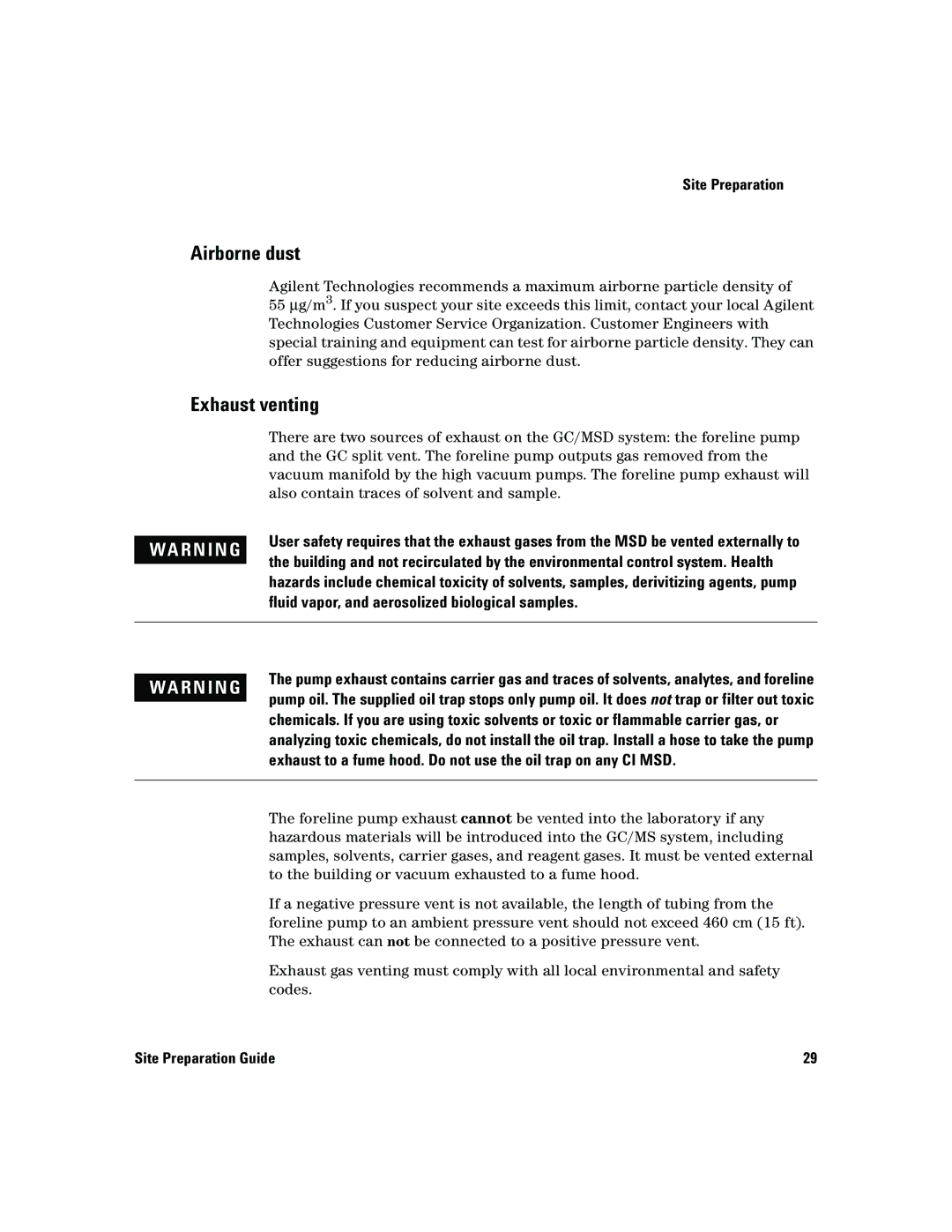Site Preparation
Airborne dust
Agilent Technologies recommends a maximum airborne particle density of
55μg/m3. If you suspect your site exceeds this limit, contact your local Agilent Technologies Customer Service Organization. Customer Engineers with special training and equipment can test for airborne particle density. They can offer suggestions for reducing airborne dust.
Exhaust venting
| There are two sources of exhaust on the GC/MSD system: the foreline pump | |
| and the GC split vent. The foreline pump outputs gas removed from the | |
| vacuum manifold by the high vacuum pumps. The foreline pump exhaust will | |
| also contain traces of solvent and sample. | |
| User safety requires that the exhaust gases from the MSD be vented externally to | |
WA R N I N G | ||
the building and not recirculated by the environmental control system. Health | ||
| ||
| hazards include chemical toxicity of solvents, samples, derivitizing agents, pump | |
| fluid vapor, and aerosolized biological samples. | |
|
| |
| The pump exhaust contains carrier gas and traces of solvents, analytes, and foreline | |
WA R N I N G | ||
pump oil. The supplied oil trap stops only pump oil. It does not trap or filter out toxic | ||
| ||
| chemicals. If you are using toxic solvents or toxic or flammable carrier gas, or | |
| analyzing toxic chemicals, do not install the oil trap. Install a hose to take the pump | |
| exhaust to a fume hood. Do not use the oil trap on any CI MSD. | |
|
| |
| The foreline pump exhaust cannot be vented into the laboratory if any | |
| hazardous materials will be introduced into the GC/MS system, including | |
| samples, solvents, carrier gases, and reagent gases. It must be vented external | |
| to the building or vacuum exhausted to a fume hood. | |
| If a negative pressure vent is not available, the length of tubing from the | |
| foreline pump to an ambient pressure vent should not exceed 460 cm (15 ft). | |
| The exhaust can not be connected to a positive pressure vent. | |
| Exhaust gas venting must comply with all local environmental and safety | |
| codes. |
Site Preparation Guide | 29 |
